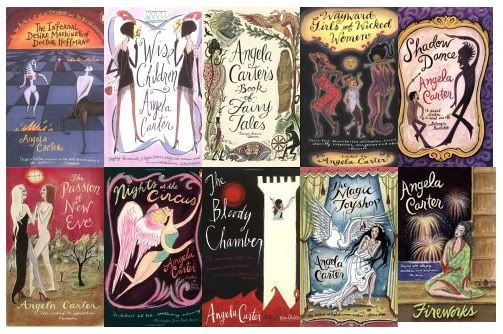 Last year, I mentioned how I'm trying to read one book by Gabriel García Márquez every year. That was a resolution I made on reading my first novel by the Nobel Prize laureate (One Hundred Years of Solitude), but now - now, I'm thinking, why shouldn't I read them back-to-back? That gives me ample time to go back and enjoy each of his books again, and again, and - you get the idea, right?
This novella re-affirms the conclusion I reached. At only 160 pages, it's a fairly quick read, but I already feel like re-reading it, and losing myself in the wondrous world so skillfully created by Márquez.
Last year, I mentioned how I'm trying to read one book by Gabriel García Márquez every year. That was a resolution I made on reading my first novel by the Nobel Prize laureate (One Hundred Years of Solitude), but now - now, I'm thinking, why shouldn't I read them back-to-back? That gives me ample time to go back and enjoy each of his books again, and again, and - you get the idea, right?
This novella re-affirms the conclusion I reached. At only 160 pages, it's a fairly quick read, but I already feel like re-reading it, and losing myself in the wondrous world so skillfully created by Márquez.
Set in Latin America in the eighteenth century, this bleak story is about a twelve year old, Sierva Maria, who is brought up by the slaves in her parents' estate. She imbibes the cultures, languages and traditions of the slaves, and is closer to them than to her own parents who have little, if any, time for her. Subsequently, she's also prone to fabricating stories and exaggerating the truth, as per her convenience - sometimes, for no rhyme or reason ("She wouldn't tell the truth even by mistake").
When she is bitten by a rabid dog, despite not showing any signs of hydrophobia, people assume that she's either rabid, or possessed by a demon.This changes her father's attitude towards her, as he showers her with more love and affection, and tries to save her, but is forced to listen to the bishop, who believes that an exorcism is to be performed to cleanse the girl, despite the famous Jewish physician, Abrenuncio, dismissing the possibility of any such possession. In a world of wild beliefs and crazy superstitions, Abrenuncio is one of the few pragmatic minds, but the Bishop's belief that rabies is one of the forms the demon can adopt to enter the human body is popularly accepted.
Subsequently, Sierva Maria is incarcerated to the convent at St. Clara, where the Cayetano Delaura, the chief exorcist, is assigned to her. Delaura, almost typically, falls in love with the girl, and tries to figure out a way to save her life, with the help of Abrenuncio. However, because the girl's ways is so different from what they accept, it's almost impossible to cast the accusations aside. Her familiarity with the slave traditions, and the ease with which she speaks their languages and blends in with them is essentially why no one believes that she is perfectly unblemished, despite the bite.
Delaura, an extremely religious person, and the Bishop's trusted subordinate, tries sticking up for the girl, as love for the girl thirty years his junior, possesses him, but in a world where superstitions are predominant and rational reasoning dismissed, he is fighting a lost battle.
What are the demons though? Rabies? Traditions? Superstitions? Clashing of cultures - the Christians and the slaves? Or, love? And how does one overcome these demons? More importantly, can they be overcome?
People are desperate to cling on to the supernatural in order to explain some of the calamities that occur in their lives, at the expense of ignoring completely rational explanations. Is it that they don't know better, or that they choose not to know better? In this incredibly dark and gloomy book, Marquez again creates a world that shows the class divide and how the religious customs take precedence over all else. Despite this being a comparatively short read, the depth of the story and the emotions it evokes linger on long after you put the book back on the shelf.
Have you read anything by this incredibly talented Nobel Laureate? Which book is your favourite?


 After reading
After reading 
 Background:
Background: